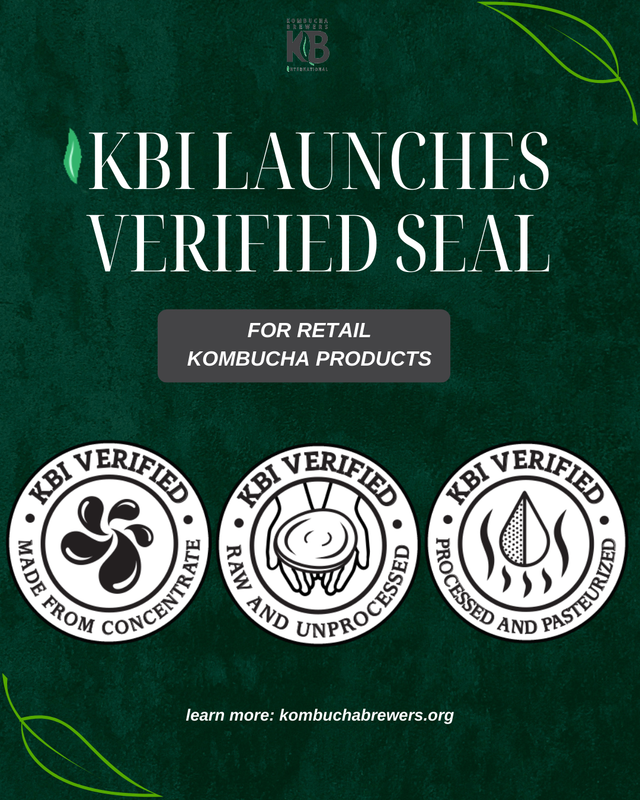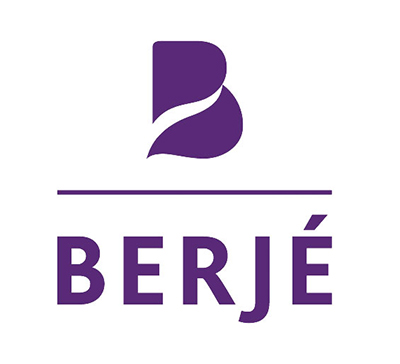
The beverage industry just got a major transparency boost. After more than a decade of advocacy and collaboration, Kombucha Brewers International (KBI) has officially launched the first-ever KBI Verified Seal for retail kombucha products—a game-changing development that promises to revolutionize how consumers, retailers, and foodservice operators identify authentic fermented kombucha.
For restaurant owners and beverage directors navigating the increasingly complex kombucha landscape, this new verification system addresses a critical challenge: distinguishing genuine fermented kombucha from shelf-stable or synthetically formulated “kombucha-like” products that flood the market.
The Problem with Kombucha Category Confusion
The kombucha market has exploded in recent years, but growth has come with significant consumer confusion. As the category expanded, so did the number of products marketed as kombucha despite lacking traditional fermentation methods or probiotic activity. This confusion creates real challenges for food and beverage professionals who want to serve authentic, high-quality kombucha to their customers.
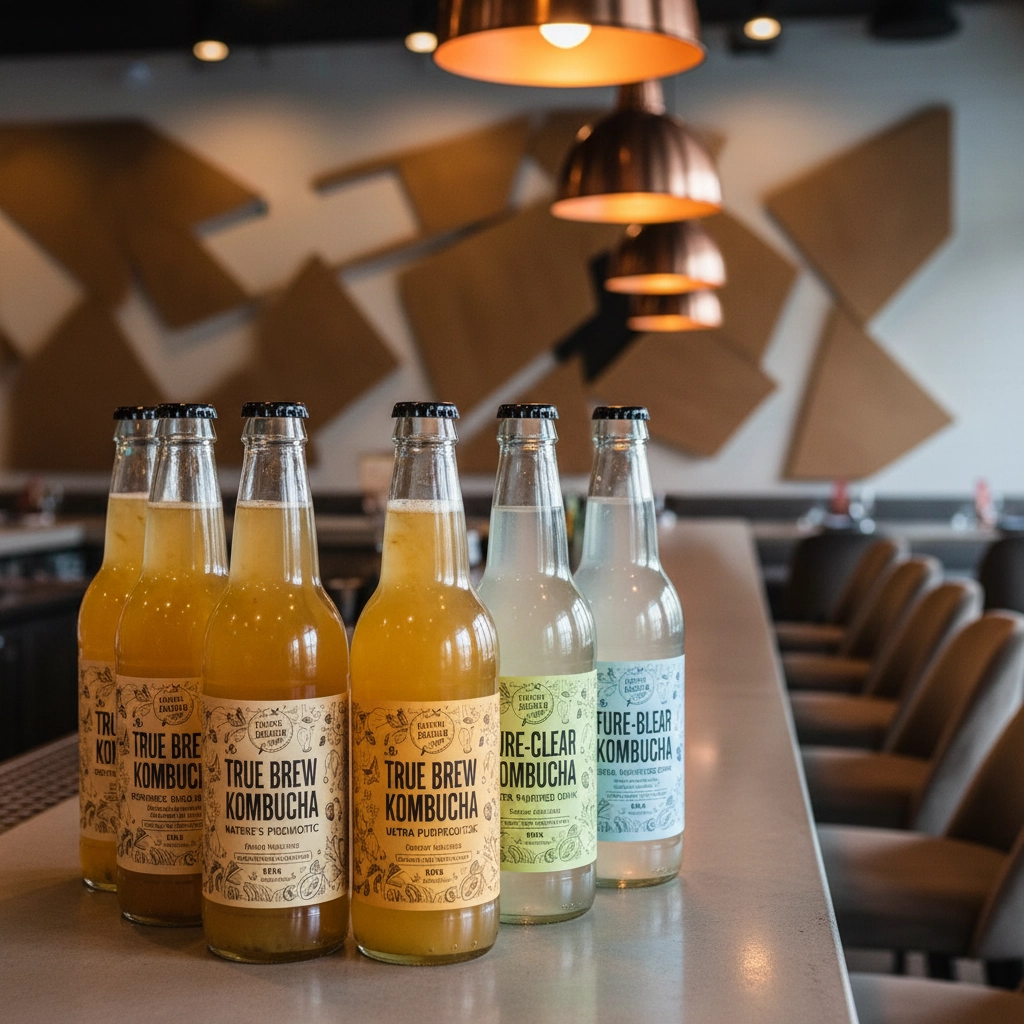
“This seal is the culmination of countless hours from passionate brewers across the globe,” said GT Dave, Founder of GT’s Living Foods, whose company became the first to carry the KBI Verified Seal during their 30th anniversary celebration at Natural Products Expo West 2025. “It’s an opportunity to help consumers better understand what real fermentation looks like and why it matters.”
The timing couldn’t be more crucial for the food service industry. With health-conscious consumers increasingly seeking functional beverages and restaurants looking to differentiate their beverage programs, authentic kombucha represents a significant opportunity—but only if operators can confidently identify genuine products.
Understanding the Three KBI Verified Seal Categories
The KBI Verified Seal Program establishes three distinct categories, each addressing different production methods and consumer preferences:
Raw (Not From Concentrate)
This category represents traditional raw kombucha that’s freshly fermented and never concentrated. For restaurants prioritizing farm-to-table concepts or health-focused menus, raw kombucha offers the most authentic fermentation profile with live, active cultures intact.
Concentrate
This category covers brewed kombucha that’s concentrated and then reconstituted. While maintaining core fermentation characteristics, this format allows for improved shelf stability—a crucial consideration for restaurants with varying inventory turnover rates or limited refrigeration space.
Pasteurized
Heat-treated kombucha falls into this category, offering different taste and consistency profiles. Though pasteurized versions may no longer contain live cultures, they provide operational advantages for high-volume foodservice operations requiring extended shelf life.
What This Means for Restaurant Operations and Beverage Programs
For food and beverage managers, the KBI Verified Seal eliminates guesswork when sourcing kombucha for their establishments. The verification process confirms that products ensure live, active cultures and organic acid profiles—the hallmarks of genuine kombucha fermentation.
This standardization directly impacts several operational areas:
Menu Development and Marketing: Restaurants can confidently promote verified kombucha products, knowing they’re serving authentic fermented beverages. This transparency becomes especially valuable for establishments building reputations around health-conscious offerings or functional beverages.
Inventory Management: Understanding the different seal categories helps beverage directors make informed decisions about storage requirements, shelf life, and rotation protocols. Raw varieties require consistent refrigeration, while pasteurized options offer more flexibility.
Cost Control: By clearly identifying production methods, the seal system helps operators understand pricing variations and select products that align with their budget and quality standards.
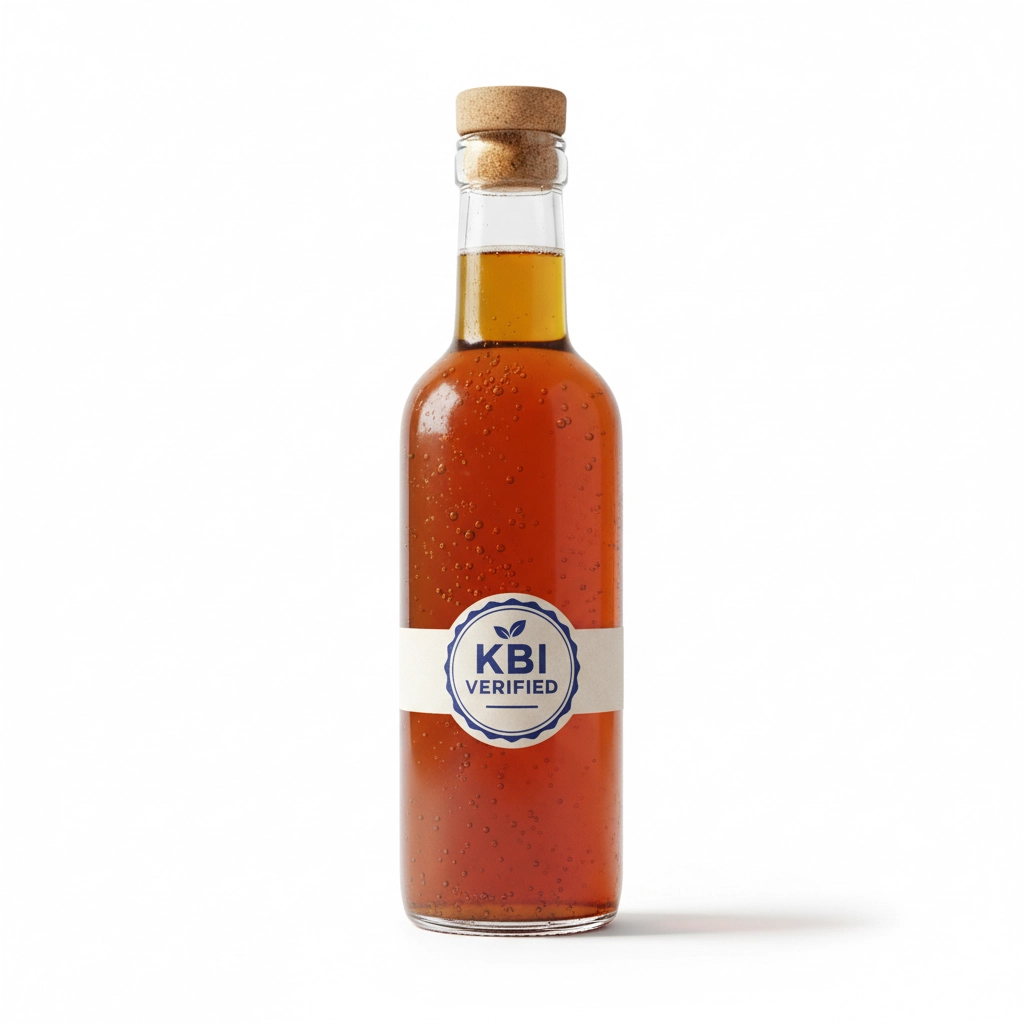
Industry Impact and Consumer Trust Building
The KBI Verified Seal Program builds on the organization’s 2020 launch of the Kombucha Code of Practice—the first published framework outlining kombucha product definitions, labeling requirements, and quality benchmarks. This foundation work has been essential as the beverage industry has matured and consumer expectations have evolved.
For hospitality professionals, this development represents more than just product verification. It signals the kombucha category’s evolution from niche health drink to mainstream beverage option worthy of serious consideration in diverse foodservice settings.
The seal program addresses what many beverage directors have experienced firsthand: customer disappointment when expecting traditional fermented kombucha but receiving products that lack the complex flavor profiles and potential health benefits associated with authentic fermentation.
Operational Advantages for Foodservice Professionals
The verification system offers several practical benefits for restaurants and foodservice operations:
Reduced Product Research Time: Instead of researching individual brands and production methods, beverage managers can quickly identify verified products that meet specific operational needs.
Enhanced Customer Satisfaction: Serving verified kombucha reduces the risk of customer complaints about taste, quality, or authenticity—particularly important for establishments building loyal followings around beverage quality.
Supplier Relationship Improvements: The standardized verification process creates clearer communication between operators and distributors, reducing confusion about product specifications and quality expectations.
Training Simplification: Staff education becomes more straightforward when products carry clear verification indicating production methods and characteristics.
Market Differentiation Opportunities
For forward-thinking restaurant operators, the KBI Verified Seal creates new opportunities for market differentiation. As consumer awareness of the verification system grows, establishments serving verified kombucha can position themselves as quality-focused operations that prioritize authenticity.
This differentiation becomes particularly valuable in competitive markets where restaurants seek unique selling propositions. Featuring verified kombucha alongside other premium beverage offerings can elevate overall program perception and support premium pricing strategies.
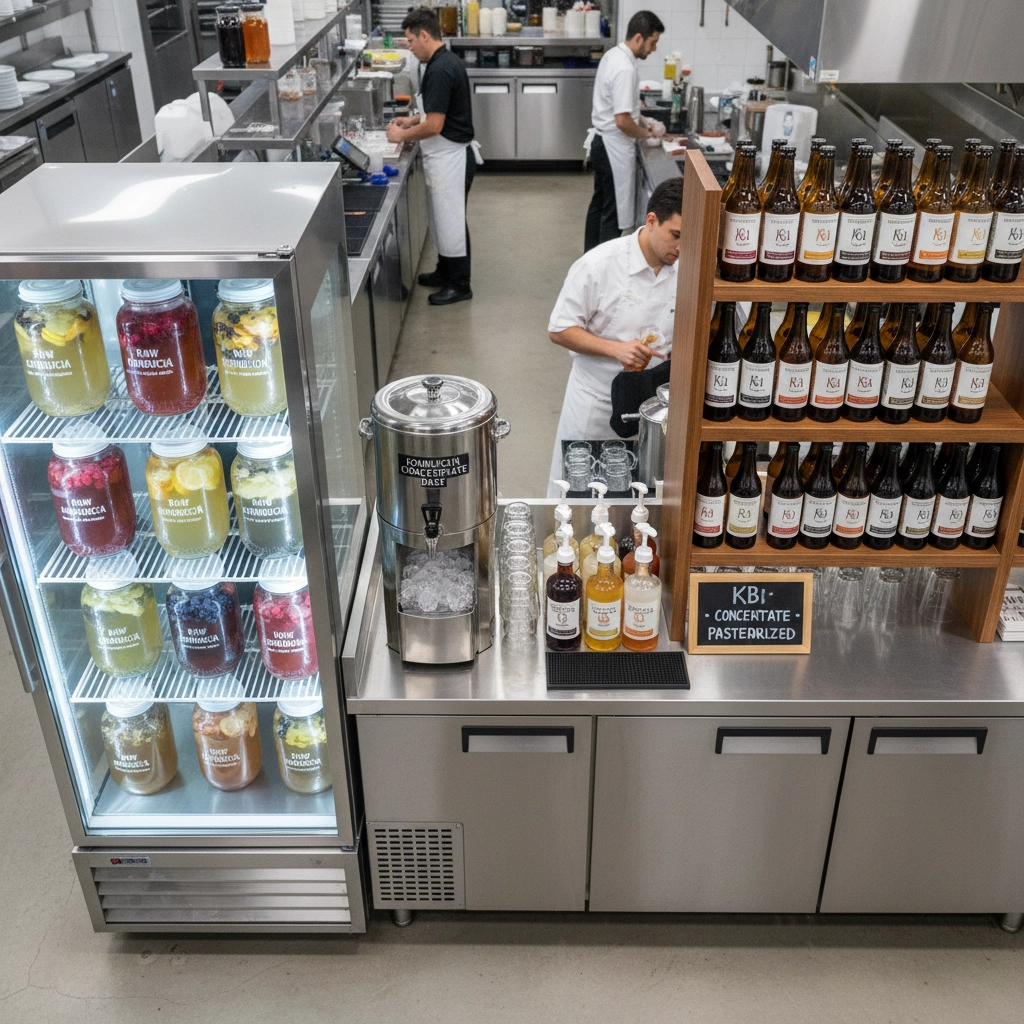
Looking Ahead: Industry Standardization and Growth
The launch of the KBI Verified Seal represents a significant step toward industry maturation. As more brands pursue verification and consumers become familiar with the seal system, expect to see clearer market segmentation between authentic fermented products and alternative formulations.
For beverage industry professionals, this development signals broader trends toward transparency and standardization that are reshaping consumer packaged goods categories. The kombucha verification model may well influence similar initiatives in other emerging beverage segments.
The program also reflects growing consumer sophistication about functional beverages and fermented products. As awareness increases, operators who understand and utilize verification systems position themselves advantageously for long-term success.
Implementation Strategies for Restaurant Operators
Food and beverage directors should consider several strategic approaches when incorporating verified kombucha products:
Gradual Integration: Start with one verified product in each category to understand customer preferences and operational requirements before expanding offerings.
Staff Education: Train service staff to understand and communicate the differences between verification categories, enabling confident customer recommendations.
Menu Positioning: Consider featuring verified status in menu descriptions or beverage lists, particularly for health-focused establishments or customers seeking authentic fermented products.
Supplier Partnerships: Work with distributors to understand their verified product portfolios and ensure consistent availability of preferred items.
The KBI Verified Seal Program marks a watershed moment for the kombucha category and presents significant opportunities for savvy foodservice professionals. By understanding the verification system and its implications, restaurant operators can make informed decisions that enhance their beverage programs while building customer trust and satisfaction.
As the food and beverage industry continues evolving toward greater transparency and authenticity, initiatives like the KBI Verified Seal demonstrate how industry organizations can provide valuable tools for both operators and consumers. The key for restaurant professionals lies in understanding these developments and leveraging them strategically to enhance their competitive positioning and customer experience.
Written by Michael Politz, Author of Guide to Restaurant Success: The Proven Process for Starting Any Restaurant Business From Scratch to Success (ISBN: 978-1-119-66896-1), Founder of Food & Beverage Magazine, the leading online magazine and resource in the industry. Designer of the Bluetooth logo and recognized in Entrepreneur Magazine’s “Top 40 Under 40” for founding American Wholesale Floral. Politz is also the founder of the Proof Awards and the CPG Awards and a partner in numerous consumer brands across the food and beverage sector.



